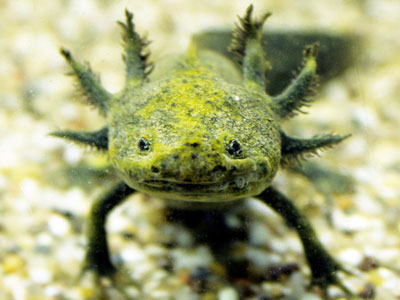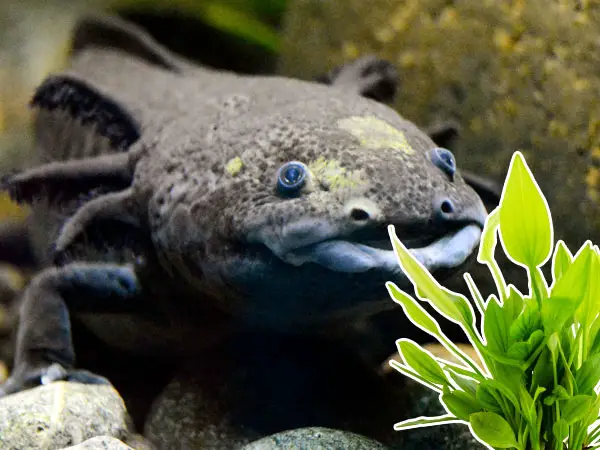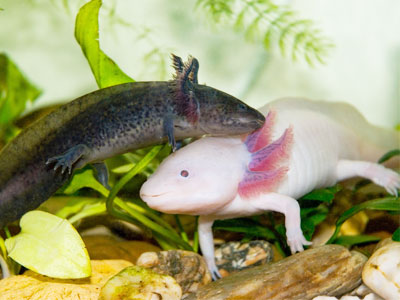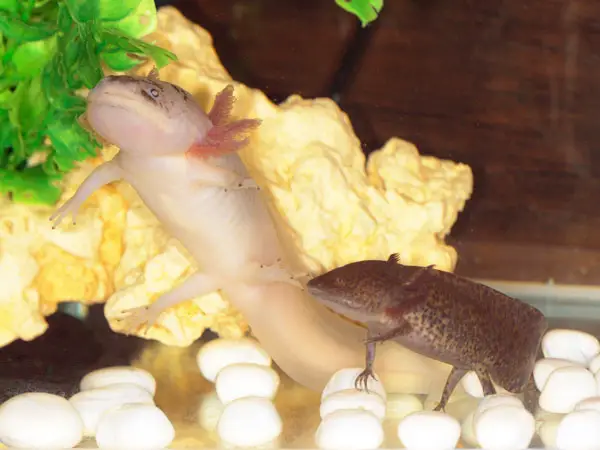When it comes to Axolotls, the main theme of their diet is meat. What they need is a protein-rich diet because that is what their digestive system is designed for. An important thing to consider when feeding them is that their teeth are not really for grinding or biting.
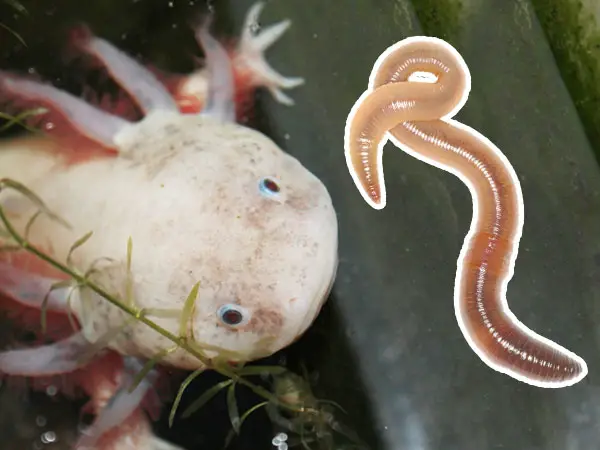
They have particularly weak teeth, which is why they have to consume their foods as whole. Before feeding your pet, you need to take a look at the size of the food. You need to make sure it really fits in his mouth.
This is why worms are an ideal source of nutrition for them. It is easy to find worms that can easily fit in their mouth. They are rich in protein and other essential nutrients that your axolotl can thrive on. Now obviously, worms are not the only type of meat-based foods that axolotls can eat.
The best thing about these worms is that you can buy a lot of them, making it a cost and time-effective way to find your pet. You pick a worm, throw it into the aquarium and watch as it disappears in your axolotl’s mouth. It is as simple as it gets.
Best Live Worms for Axolotls
There is a wide range of worms to choose from in the pet store that can be considered as potential axolotl food. It can be confusing if you don’t know exactly which ones are recommended for these salamanders to consume.
Axolotls really don’t need much. You can feed them twice a day, giving them a worm that can fit into their mouth each time. The best thing about worms is that they are full of protein, but not always the right type of protein.
This is why we have created a comprehensive list of the best worm foods you can give to your pet. We are going to go through them one-by-one and explain the pros and cons of each type of worm. Although not every one of them offers ideal nutritional value, you can still offer those as occasional treats.
1. Earthworms
Feeding your axolotl with live earthworms is a great idea, but only after their four legs have fully formed. You not only need to buy small earthworms but also to cut them into smaller pieces. These worms can provide huge nutritional value for your pet as they contain lots of protein.
They are simply too big for them to consume as whole. The rule of thumb is to cut the worm into 1cm bits or smaller. The, you can feed them these bits twice a day. As you see your axolotl grow, you can gradually increase the size of the worm bits you give him.
At the point when your axolotl becomes full-grown, you can start giving him full worms. An axolotl becomes full-grown approximately at the age of 6 months. That is when you can give him two earthworms daily.
Then you can start going for the most cost-effective method, which is buying a pack of mixed size worms. In case you find some particularly big ones in it, you can still chop it into two.
2. Bloodworms
When midge flies lay their eggs and they hatch, larvae get born that we call bloodworms. The only reason why we call them worms is because they look like them. These red-colored worms are ideal axolotl food because they contain plenty of nutrition.
Getting bloodworms for your axolotl is easy. Pet stores usually sell frozen ones in packs that last for a long time. No matter whether your have an adult axolotl or a younger one, as this is the type of food that will surely fit into his mouth.
They absolutely love it so a portion of bloodworms is going to be consumed by them in no time. Since frozen bloodworms are sold in cubes, you need to wait until it de-freezes a bit so that you can feed some to your axolotl.
Ideally, you should put some of the frozen worms into a cup of water from the tank and wait a bit. You can feed a lot of portions to your pet from a single brick.
3. Blackworms
Blackworms are somewhat smaller than your usual axolotl food. This is why they are an excellent choice for juveniles. It fits in their mouth, they can consume it easily and it contains an immense amount of nutrition. If you are lucky enough, you can find some at your local pet shop.
Keep in mind that they live in shallow waters out in nature so they should not be immersed in water that much. You can keep them in the fridge in some shallow plate. Changing their water a few times a day is also important because otherwise it will get smelly.
Use only dechlorinated water when you change it. Take a look at them every time you change the water and remove the ones that died. You can easily tell them apart by their white color. Also, be informed about the exact time when your pet store gets a new batch of blackworms.
Since they usually don’t rinse them that often, those fresh worms are in better hands in your home.
4. Mealworms
Mealworms should be only considered as treats for your axolotl. These worms are simply not made to be the primary food of your pet. First off, there is not enough calcium in them for your axolotl to thrive. For them, calcium is important for optimal health and it is responsible for many of their key organs.
What makes mealworms truly lack nutrition is the fact that they have chitin. Axolotls really can’t digest chitin, which is a particular type of protein that only passes through them. And that’s not all, as mealworms are well-known about their insanely strong jaws.
With that jaw, they can cause some serious damage once they get into an axolotl’s system. In order to prevent this from happening, you must crush their jaws before feeding them to your pet. Of course, you can’t really crush them by hand so find a tweezer or some other tool that helps.
Feeding them mealworms all the time will definitely cause health problems on the long therm. Do it occasionally and your axolotl is going to be more than happy to eat it.
5. Wax Worms
Wax worm is another food that should be offered to your axolotl as a treat. Now you need to be careful with this one because if you notice there is some mold on them in the shop, don’t buy them. You need to find some fresh wax worms to surprise your axolotls with.
In addition, the size of these worms actually matters because axolotls are often not able to swallow them. You need to make sure that the wax worm indeed fits in their mouth. If it’s too big, your salamander will probably just spit it out.
Since axolotls have very few teeth and they are not as sharp, they prefer to swallow their food as whole. Although wax worms have plenty of protein in them without doubt, it is not exactly the type of protein your pet thrives on. They also contain a lot of fat which is not good for these salamanders in big amounts.
Nevertheless, wax worms are ideal treats for your axolotls, but nothing more.
Worms to Avoid Feeding to Axolotls
Feeding worms that have a hard exoskeleton can be really bad for your axolotl. Their digestive system is simply not made for those type of foods. They are certainly going to eat superworms, for example, but it is going to be bad for their digestion.
When your axolotl eats something with a hard exoskeleton, he won’t be able to digest it. It will not only come out as a whole but also cause damage while it goes through the digestive system. Feeding them lots of mealworms is also bad for their stomach, which is why it is considered as a treat.
Wrapping Up
As you can see, worms can be a pretty straightforward source of nutrition for your axolotl. There is really not much to think about. All you need to do is buy a batch of worms and feed them to your salamander twice a day.
They are also nutritious, as their protein value is ideal for your carnivore pet. However, not all of them are ideal for an axolotl diet. There are certain worms with hard exoskeletons and poor nutritional value that can be bad for them.
They can cause digestive problems that will really make your axolotl sick on the long run. This is why it is important to know which ones you should buy. With our comprehensive list of best worm foods, you can just go to the pet shop and buy the exact worms we mentioned.
As a result, you are going to have a happy and healthy axolotl that thrives on the simplest and most nutritious worm-based diet.

